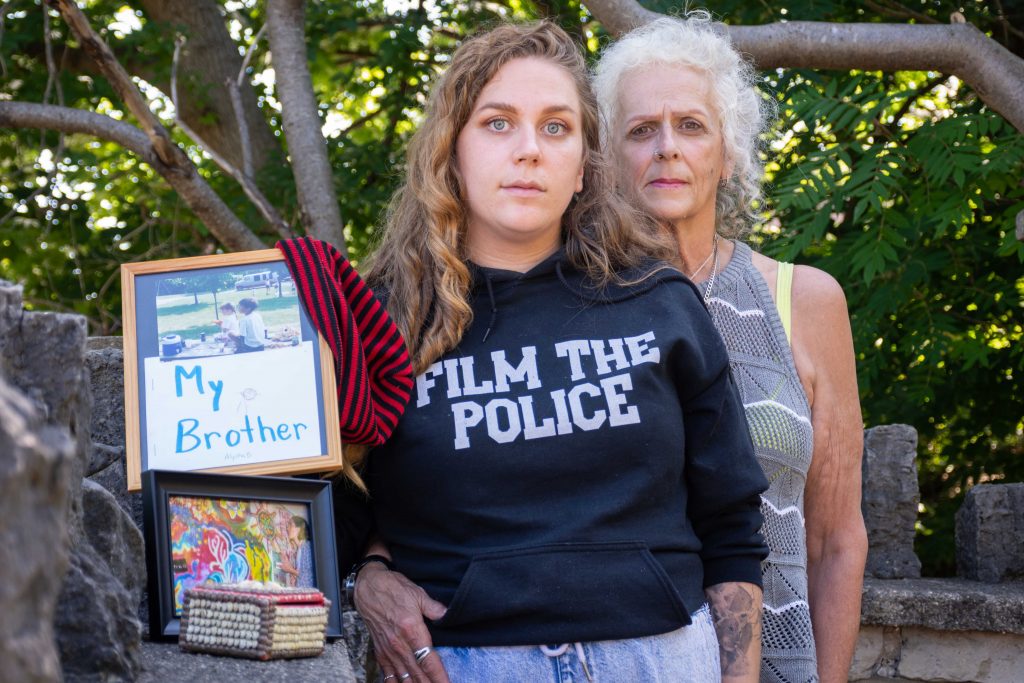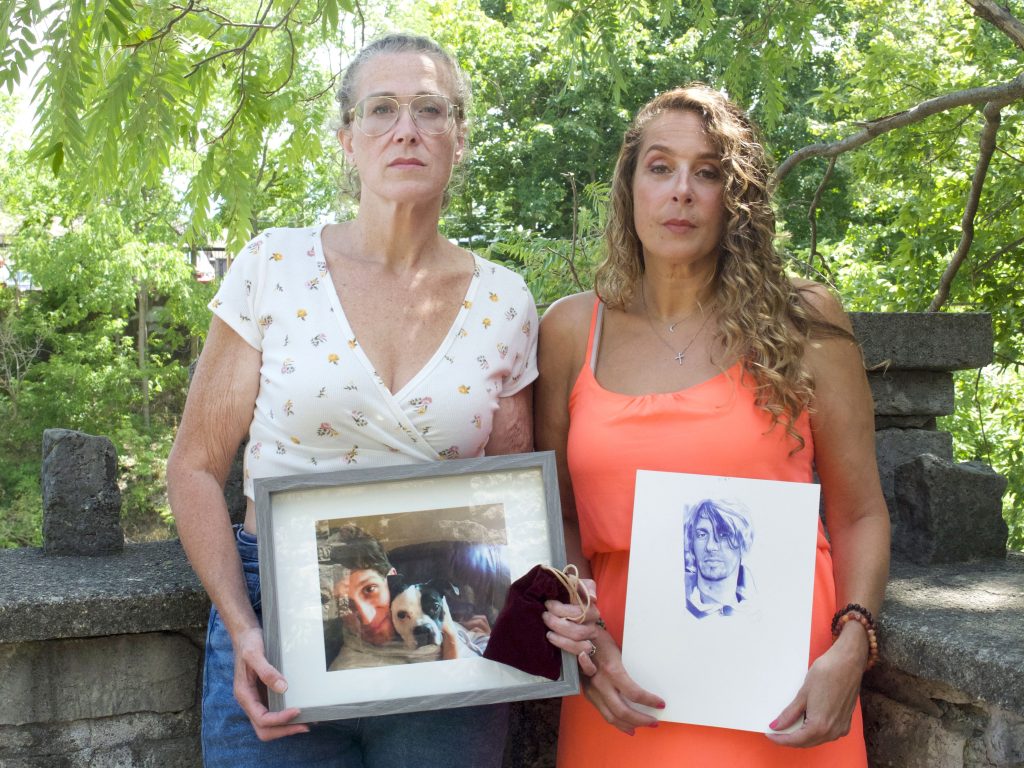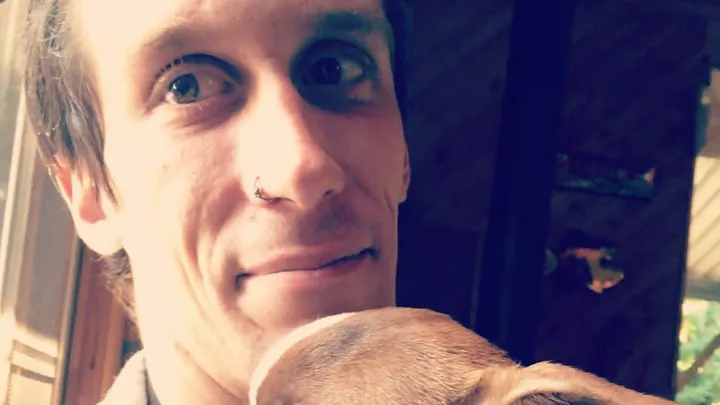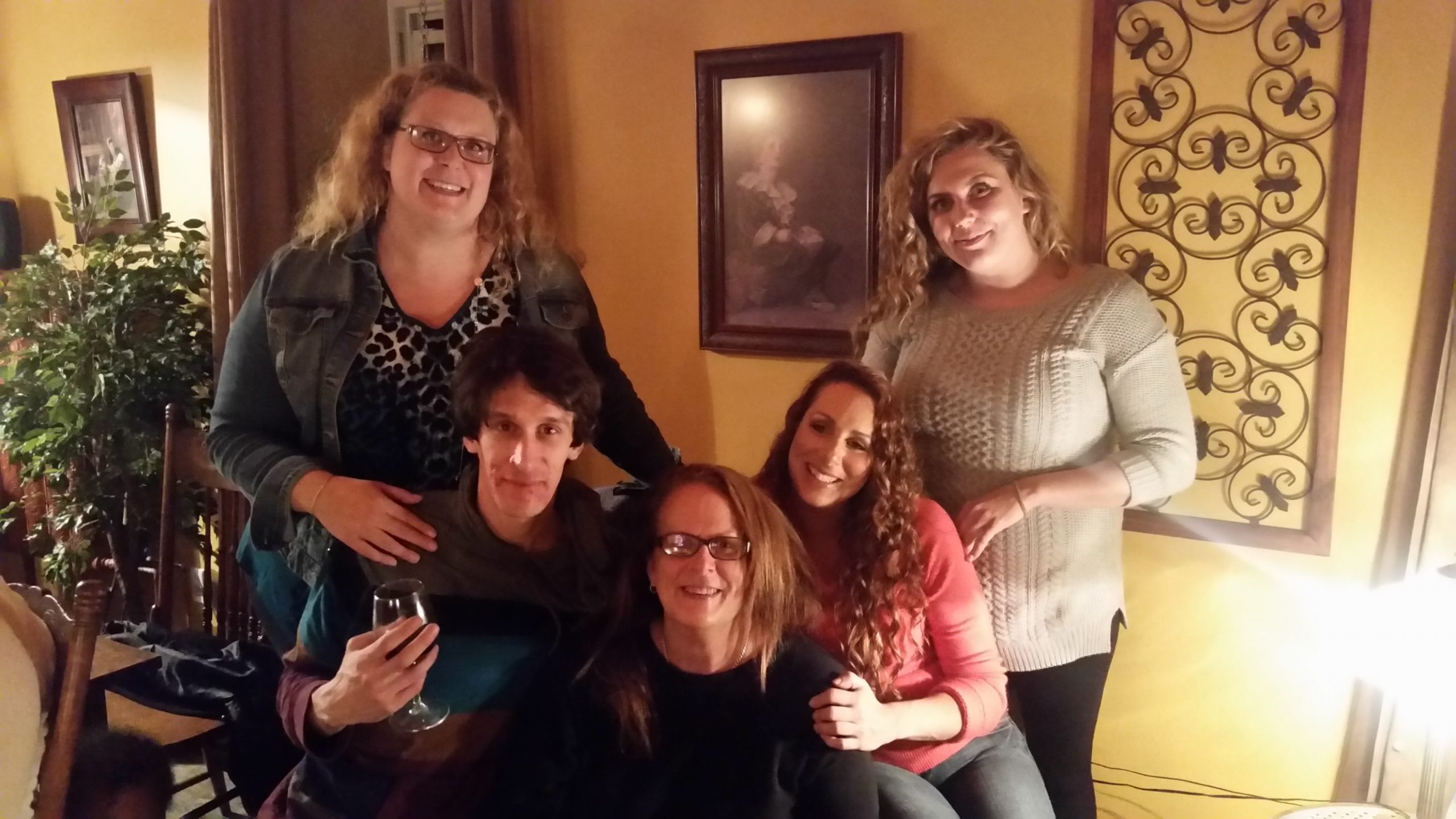FERGUS — At Templin Gardens on a mid-week afternoon, Sandra and Alysha Bunyan are sitting at a picnic table bordered by gardens planted with bright flowers and lush greenery.
Sparrows flitter about and passersby stroll along brick pathways through the sunshine-soaked area unaware of the weight bearing down on the mother and daughter as the first anniversary of the death of Mathias Bunyan—a son, brother, and uncle—grew ever closer.
Aug. 15 brought with it no cause for celebration.
The anniversary came and went, marked by a grief and anguish difficult even for the family to comprehend, as a mother and three sisters mourned the death of Mathias at the hands of police.
It was a little over a year ago, on that August day, that an unknown Wellington OPP officer killed Mathias by firing four rounds into the 31-year-old in his Belsyde Avenue apartment where he ultimately took his last breath.
When the Advertiser last spoke with his sisters—Alysha Bunyan, Rachel Labrie, and Kimberley Feather—they were left feeling, in their words, distraught, confused, and lost.
Their lives would become akin to a rollercoaster ride, marked by questions without answers.
In the weeks following, the sisters repeatedly invited the public into their once-private lives by speaking with reporters, at times allowing dark and revealing details about who their brother had become, intertwined with others about more joyful and innocent times, and the fondness the women felt for a sibling they describe as a “gentle giant.”
Alysha had this to say recently: “My life is now split in to two: it’s before my brother was murdered and after my brother was murdered.”
In many ways, their lives are unchanged from one year ago. The same unanswered questions remain about what exactly happened inside Mathias’ apartment, and what had gone so wrong in his life leading up to that fateful day.
There’s hope a future mandatory coroner’s inquest will bring to light more details, currently only known to police, surrounding their actions and Mathias’ subsequent death, but nobody knows when the inquest will begin.
Although healing has begun, closure at this point is unreachable. It hides somewhere in the distance; a year off, maybe two, maybe more.
However, not all progress has been stunted by the slow and inhumane churning of the legal system during the past year.
Sandra hadn’t previously been able to muster the wherewithal to participate in an interview about the killing of her son.
“I could hardly talk … I’d get a couple sentences out and then forget where I was,” she said.
And yet, here she sat: wearing oversized sunglasses, her grey curly hair fashioned, and her lips made bright with pink lipstick.
She has returned to her job at a local long-term care home, following extended time away.
Alysha, now a year older at 30, says the family is “trying to do the best we can with the circumstances that we’ve been dealt.”
“We’re still grieving every day,” she said.
The week leading up to the day Mathias was killed had been fragile.
“You have all these memories that just flood your brain, and it leaves you paralyzed and then you’re just stuck almost in this one spot,” Alysha said.
The women brought mementos of Mathias’ life, including a striped red and black touque he used to wear.

Alysha (front) and Sandra Bunyan (Photo by Jordan Snobelen)
Sandra feels the fabric in her hands while talking, and bringing the touque closer to her face, she says, “Oh wow, it does smell like him, oh my God.”
“I know, it’s hard, I smell it every day,” Alysha says.
Tears begin streaming down Sandra’s face.
Mathias’ death has torn the close-knit fabric of the family.
“We’re learning how to …” Sandra begins, Alysha picking up the thought, “relive again without our brother and your son.”
“It’s tough to navigate,” Sandra says. “I am trying … but I don’t know if we’ll ever be the same together.”
Alysha—having been the first to arrive and find out her brother had been killed, the one to identify her brother in a photograph, and also to have seen photos from the Special Investigations Unit of her dead brother frozen in terror and covered in blood—was diagnosed with post-traumatic stress disorder six months after Mathias’ death and remains on a waitlist for trauma-specific therapy over a year away.
The youngest of the siblings, Alysha was once a fun-loving, extroverted person, her sisters say.
Alysha recognizes a change in herself; leaving home is unfathomable some days.
“It’s an overwhelming feeling of emotions; you don’t know whether you want to yell, scream, or cry,” she says.
If pain easily overwhelms Alysha, her older sisters, Kimberley Feather and Rachel Labrie, who also spoke with a reporter at Templin Gardens two days later, are more stoic.

Sisters Kimberley Feather (left) and Rachel Labrie (Photo by Jordan Snobelen)
“It’s cracked our family,” Kimberley said. “We love each other and stuff, but are we the same? No, there’s a piece of us missing.”
Grief manifests differently, but feelings of guilt and helplessness are shared among the women.
In the year leading up to Mathias’ death, the family says they fought with a man they no longer recognized—both in appearance and personality—as he descended farther into what they suspect was an undiagnosed mental illness.
“There was nowhere to turn,” Kimberley said.
In the many phone calls the family made to support services, Kimberley questions why “someone didn’t help us to help him.”
The sisters describe feelings of bewilderment and helplessness and Sandra said she only received pushback when trying to help her son.
She wrestles with doubt about whether more could have been done.
“I blame him too; I’m mad at him too,” she said.
Sandra adjusts her posture and slouches, touching three bracelets around her left wrist, while looking to framed photographs of her son, where he is pictured standing upright and very much alive.
A minute of silence passes before Sandra says, “He was a decent person at one time, and he was ill.”
The family is calling for better mental health resources for families with loved ones who are struggling with mental illness, such as de-escalation coaching, how to identify and navigate triggers, and how to manage volatile relationships.
“Say to yourself: ‘This could be my family, too,’” Rachel said. “There’s got to be something done so that other families are not going to live in this nightmare.”
The family also wants to see more suitable professionals responding to mental-health related calls.
Having several officers force their way into her home, Alysha imagines, would be intimidating for her on a good day.
The sisters question why officers couldn’t have left Mathias in the closest where he had fled to, and waited for more appropriate services to arrive, rather than escalating the situation by twice pepper spraying him while he was in the closet.
A four-member emergency response team had been dispatched one minute before the first round of pepper spray was fired, according to a Special Investigations Unit report.
“They just totally changed the whole situation the minute they did that,” Rachel said. “I just feel so many things could have gone differently.”

Mathias Bunyan (Submitted photo)
Kimberley ultimately believes her brother was killed because of inadequate officer training and is calling for empathy and de-escalation training for police, and the use of less-lethal weapons.
“That cop didn’t wake up that morning wanting to shoot somebody, I truly believe that,” she said.
Mathias’ life, short as it was, was a blessing to the family, Kimberley said.
Though his death, she said, will be “a waste … if nothing comes of this; nothing comes of our fight.”
A year later, the shadow of grief feels more familiar, if not easier to be around.
The hardest part, the women say, is the learning process—to give themselves permission to experience joy.
“Somebody has to be here for the people that are left—we can’t die with him,” Kimberley said.
“I think the way to honour him is to love the kids, love our family, to love each other,” Rachel added.
“There’s no moving on; it’s moving forward.”



